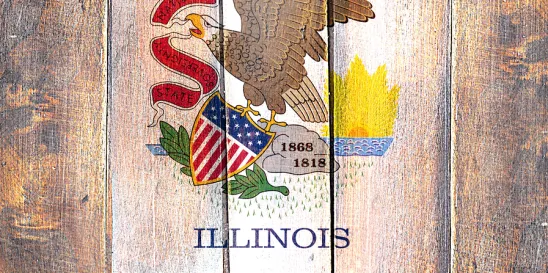On December 19, 2023, the Appellate Court of Illinois, First District, held that the “violation-of-law” exclusion1 found in a general liability policy precluded insurance coverage for a BIPA action brought against an insured. See National Fire Insurance Company of Hartford v. Visual Pak Company, Inc., 2023 IL App (1st) 221160 (Ill. App. Ct. 2023). The Illinois court’s decision squarely conflicts with Citizens Insurance Company of America v. Wynndalco Enterprises, LLC, 70 F.4th 987 (7th Cir. 2023), a Seventh Circuit decision that reached the opposite conclusion several months earlier. We discuss both decisions next.
In Wynndalco, the primary issue was whether the violation-of-law exclusion precluded coverage for a BIPA action under general liability policies.2 The Seventh Circuit began by observing that, under Illinois case law, claims alleging violations of BIPA qualify as “personal or advertising injur[ies]” under the enumerated offense of “[o]ral or written publication, in any manner, of material that violates a person’s right to privacy.” The Seventh Circuit acknowledged that a plain-text reading of the “catch-all” provision of the violation-of-law exclusion would include claims alleging BIPA violations, but concluded that a plain-text reading of the exclusion gave rise to an ambiguity. By reading the exclusion literally and broadly, the Seventh Circuit stated, “[a] plain reading of that provision would swallow a substantial portion of the coverage the policy otherwise purports to provide” in the “personal and advertising injury” coverage. The Seventh Circuit went on to examine the exclusion under the interpretive canon of ejusdem generis which seeks to clarify a “broad or general term by looking to the specific items preceding that term for clues as to how that term should be construed,” and the related canon of noscitur a soccis, which means “it is known from its associates.” The insurers argued the statutes listed in the exclusion all regulated privacy in some way. The Seventh Circuit concluded that the interpretative canons could not resolve the ambiguity in the exclusion, finding that nothing in the exclusion, be it in the title or the provisions that follow, pointed to privacy as the focus of the statutes listed in the exclusion, and that it would not be “obvious to the type of layperson or business purchasing this policy” that the exclusion would operate to preclude coverage for privacy-focused statutes.
In Visual Pak, the Appellate Court of Illinois began by distinguishing West Bend Mutual Insurance Co. v. Krishna Schaumburg Tan, Inc., 2021 IL 125978, 451 Ill.Dec. 1, 183 N.E.3d 47, an Illinois Supreme Court decision that involved a different, narrower version of the violation-of-law exclusion. The Appellate Court concluded that the exclusion before it was broader than the one in Krishna based on the title and language of the exclusion. The Appellate Court also concluded that a plain-text reading of the “catch-all” provision of the exclusion clearly encompasses violations of BIPA, as observed in Wynndalco. The Appellate Court also applied the canons of ejusdem generis and noscitur a sociis, disagreeing with the Seventh Circuit’s conclusions in Wynndalco. First, the Appellate Court found that the inclusion of the word “recording” in the title was significant, as it encompassed the notion of “illegally taking and keeping a record of one’s information,” which, is exactly what BIPA seeks to prohibit. Second, the Appellate Court concluded that the violation-of-law exclusion “is amenable to a reasonable limiting construction of statutes or other laws that protect personal privacy” and that “BIPA is clearly one such statute.” The Appellate Court disagreed with the Seventh Circuit’s conclusion that the exclusion was intractably ambiguous, concluding that the exclusion did not wholly eviscerate “personal and advertising injury” coverage and any “hypothetical conflict” with other “personal and advertising injury” offenses was not at issue before the court.
The differences between the Seventh Circuit’s decision and the Appellate Court’s decision are stark. Given that the Seventh Circuit is not bound by the decisions of Illinois’ lower courts, an understanding of each case is crucial to analyzing potential coverage outcomes when faced with a BIPA action. Until the Illinois Supreme Court rules on the issue, or the Seventh Circuit clarifies the continued viability of Wynndalco, venue will be significant for BIPA coverage actions.
1 The exclusion was titled “Recording And Distribution Of Material Or Information In Violation Of Law[,]” and read, in relevant part, “This insurance does not apply to ... Personal and advertising injury arising directly or indirectly out of any action or omission that violates or is alleged to violate ... (4) Any federal, state or local statute, ordinance or regulation, other than the TCPA, CAN-SPAM Act of 2003 or FCRA and their amendments and additions, that addresses, prohibits, or limits the printing, dissemination, disposal, collecting, recording, sending, transmitting, communicating or distribution of material or information.”
2 In particular, the exclusion was titled “Distribution of Material in Violation of Statutes” and provided, in relevant part, that coverage was excluded for bodily injury, property damage, or personal and advertising injury “arising directly or indirectly out of any action or omission that violates or is alleged to violate ... (4) Any other laws, statutes, ordinances, or regulations, that address, prohibit or limit the printing, dissemination, disposal, collecting, recording, sending, transmitting, communicating or distribution of material or information.”





 />i
/>i

